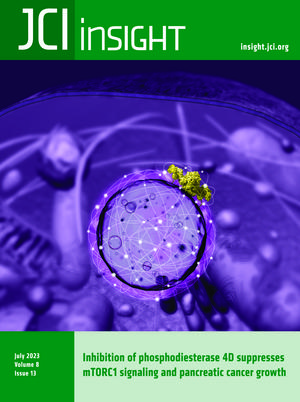The American Society for Clinical Investigation (ASCI) invites applications for the position of Editor of JCI Insight. Founded in 2016, JCI Insight supports the ASCI’s mission of publishing high-quality biomedical research, with an emphasis on clinically relevant basic and translational research. The ASCI seeks a dynamic Editor to lead a team of academic editors. The Editor should sustain the existing publication volume and provide a vision for attracting well-executed studies of interest from a range of disciplines and investigators at all career stages.
JCI Insight and the JCI are both governed by ASCI policies; however, each journal’s Editor and board are independent from each other. JCI Insight draws direct submissions and transfers from the JCI. The journal is online only, fully open access, and is supported by publication fees.
Duties of the Editor
The Editor is responsible for determining the scientific scope and content of JCI Insight; ensuring the quality and integrity of publications; assembling and leading an Editorial Board to handle research submissions; and meeting goals set by the Council and Publications Committee. The selected candidate will have responsibilities that include service on the ASCI Council. The term of office is 5 years and begins September 1, 2024.
Strategic Focus
The Editor in Chief must provide a clear vision for the future scientific development of JCI Insight, with a particular emphasis on how the journal can expand its portfolio of research publications, including scientific topics that may be underserved in other journals or in JCI Insight currently. The successful applicant should also articulate a vision for attracting high quality submissions to the journal, including any efforts for outreach to early career scientists. The Editor in Chief works in collaboration with the Editorial Board, JCI Insight’s professional editors, the ASCI publishing staff, and the ASCI Publications Committee to set priorities for the journal.
Eligibility of the Editor and Editorial Board
To be considered for the position of Editor, a candidate must:
- be a member of the ASCI
- demonstrate a strong scientific track record
For the proposed Editorial Board:
- At least two-thirds must be ASCI members (active or senior) in good standing
- Multi-institution applications are encouraged
Application timeline
- September 15, 2023: Letters of intent (LOI) due. The LOI need only state the applicant’s intention to submit a full application, no further information is required at this stage. Applicants submitting LOI will receive an operational overview of the ASCI and JCI Insight for use in developing full applications.
- January 8, 2024: Full applications due.
- March 4, 2024: Finalists for the Editor position determined.
- April 4, 2024: Editor Selection Committee interviews (in Chicago).
Full application requirements
Application materials should be completed by the proposed Editor. A single PDF should be supplied with the following sections in order:
Section 1: Application statement, not to exceed 5 single-spaced pages in 11-point font, detailing the following:
- Describe your vision for the scientific scope of manuscripts published in the Journal under your leadership, including scientific areas you see as priorities for JCI Insight and areas you see as opportunities for growth.
- Provide details of any proposed Editorial Board members. Describe how you will ensure that the team has the breadth to handle submissions across all specialties and ranging from basic research to clinical trials and bioinformatics.
- Describe how the proposed Board will evaluate manuscripts and specific efforts to ensure scientific rigor, fair decisions, and timeliness. Additionally, comment on the criteria your board will use to select suitable articles to invite for transfer from the JCI to JCI Insight.
- Describe your thoughts on the relationship between JCI Insight and the JCI in the ASCI family of journals.
- In the event that you cannot complete the duration of the term, describe the process by which a candidate to replace the Editor would be identified (subject to approval by the Council and a vote by the membership).
Section 2: Full CV of proposed Editor.
Section 3: Brief, NIH-style CVs of any named potential Associate Editors.
Section 4: Statement from representatives of the proposed Editor’s institution (Department Chair and Dean or equivalent) outlining their commitment to provide appropriate protection of time for the Editor and members of the Editorial Board, and any space and technical and administrative support for Board meetings.
Section 5: A single-page letter from each proposed Board member stating a commitment to the role.
Applications are due January 8, 2024, and should be sent by email to staff@the-asci.org.
Finalists for the Editor position will be determined March 4, 2024. Interviews for finalists will be held April 4, 2024, in Chicago.
Submitting letters of intent and applications
Address materials to Benjamin Humphreys, MD, PhD, Chair of the Editor Selection Committee, and send as an attachment to staff@the-asci.org.
Questions
Contact Sarah Jackson, Executive Editor, at sarah.jackson@the-jci.org.
Review of applications
An Editor Selection Committee will review applications, interview candidates, and recommend a selection to the ASCI Council, which then submits the recommendation to a vote of the Active segment of the ASCI membership.

